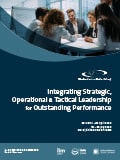Um curso de formação intensivo de desenvolvimento profissional sobre
Variable Speed-Drive
Troubleshooting
Porquê escolher este curso de formação?
The Course
AC motors represent industry's workhorse in small, medium and large size applications. It is no exaggeration to suggest that more than 50% of the energy consumed worldwide is converted by AC motors into work and these motors are controlled by drives. These drives are ever increasing more intelligent, electrical and their monitoring and operation can be integrated with the plant's SCADA system. Understanding maintenance and troubleshooting procedures of such vital industrial equipment means that reduced downtime and increased productivity are the immediate benefits for the company and its management. Equally important, the protection requirements along with their function and integration with the overall system ensures that such expensive apparatus, requiring high capital investment, is well guarded against failures further offering safety for operations personnel as well. The seminar addresses the three topics mentioned above for both AC motors and their drives.
The Goals
The objectives of the seminar are:
- To define the operation and construction of AC electrical motors and the electrical drives based on modern state-of-the-art inverter technology, and their characteristics that need to be matched with those of loads.
- To review maintenance procedures both for motors and drives following well-established industrial procedures as outlined in standards.
- To illustrate with troubleshooting methods for both motors and drives following methodologies that have been developed by manufacturers in order to reduce downturn time dramatically.
- To analyse and familiarize on how to utilize single-line drawings and other documentation to successful perform commissioning, maintenance and troubleshooting.
- To share case studies and learn from such experience.
The Delegates
Variable speed drive and troubleshooting is intended for:
- Electrical engineers.
- Technicians and plant operations and maintenance professionals.
- Team leaders and professionals in maintenance engineering departments.
- Anyone who wishes to update their knowledge on one of the most important equipment combination, i.e. motor/drive and how to get the best of their trouble-free operation in the plant if possible.
The Process
The latest educational methods and strategies will be employed. The seminar is designed to maximize delegate benefit from the outset and any specific goals of each participant will be discussed to ensure needs are fulfilled as far as possible. Questions are encouraged throughout the day and at the daily wrap-up sessions. This provides opportunities for participants to discuss with the presenter and other delegates specific problems and appropriate solutions.
All delegates take away a detailed and comprehensive copy of the material presented; therefore minimal note taking is encouraged to ensure maximum participation and attention.
The Benefits
At the end of the seminar, each delegate will:
- Understand the operation and construction of AC electrical motors and the electrical drives based on modern electronics technology.
- Be able to explain their characteristics and the need to match various load needs.
- Become more confident on how to maintain both motors and drives following well-established industrial procedures as outlined in standards.
- Become familiar with troubleshooting methods for both motors and drives following methodologies that have been developed by manufacturers in order to reduce downturn time dramatically.
- Learn how to utilize single-line drawings, and other documentation to successfully perform commissioning, maintenance and troubleshooting of both motors and drives.
- Become exposed to industrial standards and case studies so that to be able to apply this knowledge in the industrial plant as quickly and efficiently as possible.
The Results
In many onshore and offshore industrial and commercial plants, automation of any process and associated control relies heavily on motors and their drives. The technical skills of engineers and technical managers as far as the operation, maintenance and troubleshooting of such important industrial equipment are vital for the efficient and cost effective operation of the plant with minimum downturn. These skills, as technology makes ever fast advancements need to be acquired and employees need training on the latest technologies and methods of motor drives and control in order to offer best solutions for the enterprise. Maintenance and operation of the plants on an efficient and reliable manner rely on strong skills of employees. The seminar addresses the fundamental topic of the key technology associated with the factory automation, i.e., motors and variable speed drives.
O conteúdo do curso
Primeiro dia
AC Motors
- Discussion - Goals
- Introduction to magnets, excitation and the generation of back emf.
- Fundamentals of rotating machines theory, AC motors and their construction, rotor slip and principles of operation, equivalent circuit, torque-speed characteristics, motoring and regenerative region of operation, efficiency, inertia, horsepower, power factor.
- Single-phase and three-phase AC motors, types of single-phase motors, split-phase and capacitor.
- Starting of induction motors and associated techniques, accelerating.
- Speed control requirements of AC motors and load matching.
Segundo dia
Drives
- Basic principles of AC Variable-Speed Drives (VSD's), constant torque region, constant power (extended speed) region, four quadrant operation.
- Semicondutores de potência, díodo, tiristor (SCR), IGBT, MOSFET, GTO e outros.
- Inverters, voltage-source and current-source, pulse width modulated (PWM) inverters.
- Two-level pulse width modulated inverter, DC link energy and capacitor sizing, regeneration or dynamic slowdown, dynamic breaking, regeneration.
- PWM waveforms and analysis, effects of PWM on motor bearings and insulation and life expectancy, volts/Hertz control, start up and operation, dynamics, PWM rectifier inverter systems.
- Switching transients, harmonics and power factor.
- AC drive line power factor, effect of AC input on drive operation, switching transients, insulation voltage stress, motor winding voltage distribution, radiated and conducted electromagnetic interferences (EMI), EMI filtering.
Terceiro dia
Troubleshooting and Maintenance of Motors
- Characteristics of motors, enclosures and cooling methods, application data, design characteristics, insulation of AC motors.
- Failures in three-phase stator windings, predictive maintenance, motor troubleshooting, diagnostic testing for motors.
- Troubleshooting and maintenance of AC motors, routine care, dirt and corrosion, lubrication, heat, noise and vibration, insulation.
- Slow acceleration or refusal to starting of an AC motor, overheating and noise making of the motor, running of bearings at high temperature or making noise.
- Standards and testing.
Quarto dia
Troubleshooting and Maintenance of Drives
- Converter failures, common failure modes
- Fault current limit, device explosion rating, device application
- Thyristor failures and testing, identification of failed thyristor and diode, testing of thyristor and diode
- Reversing circuits for single-phase and three-phase AC motors
- Open and short-circuit, detection of AC motor symptoms.
- Preventative maintenance, approaches, guidelines and scheduling, checking, dynamic and static inspections, detecting phase unbalances, loss of phases, and phase reversal.
Quinto dia
Protection of Motors and Drives
- Protection of AC motors, requirements, overload protection, currents during starting and stalled point, operation of motors under three-phase unbalanced power supply, motor de-rating due to unbalanced currents, stator and rotor protection, single-phase over-current relays, phase unbalance relays, faults in stator and rotor windings, earth faults, phase-to-phase faults, modern relay design and applications, protection targeting AC synchronous motors, over-voltage and under-frequency protection.
- Fuses, circuit breakers, magnetic and thermal, overload, eutectic, bimetal and solid-state, others.
- Motor protection curves, back-up protection.
- Protection of inverters and electronic converters driving motors.
- Case studies, selection and design of systems and their protection.
- Seminar summary.
O certificado
- Certificado de conclusão AZTech para os participantes que frequentam e concluem o curso.
QUER SABERMAIS SOBRE ESTE CURSO?
© 2024. O material publicado pela AZTech aqui apresentado está protegido por direitos de autor. Todos os direitos reservados. Qualquer cópia, distribuição, utilização, disseminação, descarregamento, armazenamento (em qualquer meio), transmissão, reprodução ou utilização não autorizada, no todo ou em parte, deste esquema do curso é proibida e constitui uma violação dos direitos de autor.



